Instructions for using citric acid to clean a washing machine
Content:
Scale is a problem with all heating household appliances. If you do not promptly clean the washing machine with citric acid or another product that dissolves limescale, the heating element will overheat and break. Prevention should be carried out every 3-6 months. What rules should be followed, where and how much to pour lemons? Let's tell you everything in order.
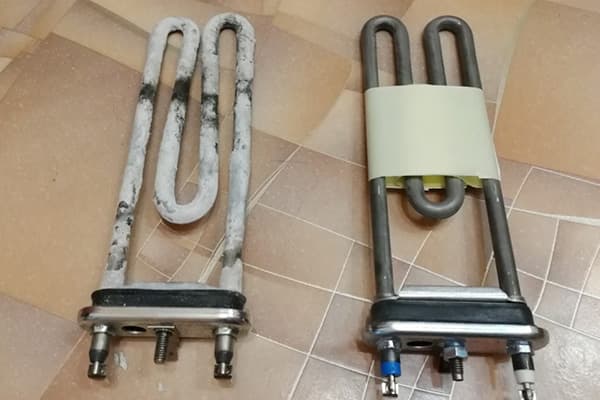
The principle of action of citric acid
Citric acid is widely used as a flavoring additive. However, this is not its only use. Many housewives know crystalline powder as a good bleaching, disinfectant and cleanser. From time immemorial, samovars, irons, and teapots were cleaned with lemon. How does it work?
Scale is the result of the deposition of magnesium and calcium bicarbonates on metal parts. When heated, they decompose into practically water-insoluble carbonates (salts) and carbon dioxide. Hard tap water is especially rich in salts. Citric acid reacts chemically with carbonates, resulting in the formation of citrates. They easily come off surfaces and are removed with water when drained.At the same time, lemon juice does not spoil metal parts and gently cleans the heating element of the washing machine.
Another product, vinegar, has a similar effect on scale. However, it has a rather pungent odor and, if handled carelessly, can leave chemical burns on your hands.
Terms of use
Lemon is relatively safe for the washing machine, but you still shouldn’t throw it in thoughtlessly. At best, cleaning will be ineffective, at worst, it will lead to breakdown.
To remove scale and not damage the parts of the device, you should follow simple rules:
- Clean only an empty washing machine, without any items in the drum.
- Use the exact amount of lemon (calculated individually). The maximum permissible weight is 200 g.
- Place citric acid in the powder compartment.
- Clean at a temperature of 60 or 90 degrees. If the second option is chosen, limit the procedure time to 1 hour.
- Remove the spin cycle and add an additional rinse (the water should be drained at least 3 times).
- Monitor the cleaning process and do not move far from the washing machine.
- After cleaning, check the filter and drain for stuck scale particles. Wipe all accessible parts of the machine with a soft cloth.
What temperature should I set?
The higher the temperature, the stronger the chemical reaction and the more effective the descaling of the washing machine. But at the same time, there is a greater risk of damage to vulnerable parts. Therefore, when choosing between 60 and 90 degrees, you should start from the degree of contamination of the heating element.
There is a need for washing at high temperatures when:
- the washing machine is used frequently, from 4 to 7 times a week;
- A program with a high temperature is mainly used - 60 degrees and above;
- tap water is hard and contains a large amount of salts (you can tell by the scale in the kettle);
- Phosphate-free powder is used for washing (phosphates reduce water hardness);
- The heating element has not been cleaned for 6 months or longer.
How much lemons should I sprinkle?
In theory, to remove 100 g of scale you need to take 125 g of citric acid. But the problem is that it is impossible to weigh limescale in a washing machine. Therefore, in practice, the calculation is made taking into account how long ago the heating element was cleaned, as well as the volume of the drum.
- From 50 to 100 g of crystalline powder is poured into a regular automatic machine that can hold 3-4 kg of laundry.
- In a washing machine with a capacity of 4-6 kg - 60-120 g.
- With a volume of 7-8 kg – 80-140 g.
- At 10 kg – 100-200 g.
The lower dosage limit is suitable for refreshing the machine during regular cleaning, and the upper limit is suitable for effectively removing old scale.
Washing time
On average, cleaning a washing machine with citric acid lasts about 1-2 hours. The speed of the chemical reaction depends on the set washing temperature and the plaque layer:
- at 60 degrees it takes from 1 to 3 hours;
- at 90 degrees – 30-60 minutes.
To carefully clean the heating element from scale, you can set the temperature to 40 degrees and, after heating the water, pause the wash for 4 hours. During this time, the limescale will completely dissolve, and all that remains is to rinse the car 3-4 times (put it on rinse).
Frequency of application
You need to descale your washing machine approximately once every 3-6 months. But again, the length of the pause between events depends on the frequency of washing and other factors listed above. If there are all the prerequisites for the rapid formation of limescale, prevention can be carried out monthly.
Step-by-step instruction
If you have neither the time nor the desire to delve into all the features of the procedure, you can use simple instructions. You will need to complete 6 steps.
So, how to clean a washing machine using lemon juice?
- Calculate the amount of citric acid according to the volume and duration of cleaning of the washing machine. The standard dosage is 3 tablespoons of crystalline powder, or 3 sachets of 20 g each.
- Make sure there are no items in the drum.
- Pour the required amount of lemon into the powder compartment.
- Select any program with a temperature of 60 degrees. Turn off spin. Put it on for an extra rinse.
- Don't walk too far while washing. If strange noises appear or the machine generates an error, check the filter and drain. If there are large quantities of scale, pieces can get stuck, then they need to be removed manually.
- At the end of the wash, open the hatch and carefully bend the edges of the elastic band. Use a rag to go over all the holes to remove any remaining plaque.
For preventative cleaning of the washing machine, citric acid can be mixed with baking soda and washing powder (40 g of each product).
Possible harm to the machine
Citric acid can be harmful only if the dosage and temperature conditions are not observed. If you pour too much of it and set the program to 90 degrees, cleaning will negatively affect the condition of the rubber parts: the seal on the door, seals on the bearings, pipes near the pump, etc. The rubber will lose elasticity, begin to crack and crumble, which threatens water leakage and serious damage to the washing machine.
Also, damage can be caused to things if you do not remove them from the machine when cleaning or combine the procedure with regular washing.Citric acid steals the color from bright fabrics, they become dull and cannot be restored.
Advantages and disadvantages of the method
The method of cleaning a washing machine with citric acid is the most popular. It is praised in reviews and recommended by experts, and there are many reasons for this.
Advantages of the method:
- budget;
- safe;
- fast;
- simple;
- effective.
Against this background, the only drawback in the form of possible harm if the rules for using lemon juice are not followed seems insignificant. However, you need to remember it.
Disadvantage of this method:
- risk of damage to rubber parts (if technology is not followed).
It is better to pour less citric acid and choose a mode with a low temperature, but clean the washing machine 2 times, than to use the product to the maximum and pay for equipment breakdown.
Alternative washing machine cleaning products
The most popular analogue of citric acid is 9% table vinegar. Special chemical powders are also produced to clean the washing machine from scale. By the way, the advertised Calgon does not remove limescale, but only prevents its appearance and improves the quality of washing.
What products can replace citric acid?
- Vinegar. To clean the washing machine from scale, use an vinegar-water solution (200 ml per 3 l). This recipe also kills unpleasant odors and gets rid of mold.
- Soda. More suitable for preventing scale, as it softens water hardness and prevents the appearance of limescale. To do this, add it during washing to a container or simply to a drum in the amount of 2-5 tablespoons. Soda is also good for mechanical cleaning of external parts from powder residues, mold, and various kinds of stains.
- Frisch activ. A product designed for cleaning the metal “insides” of a washing machine.
- Beckmann. Disinfects and removes various types of contaminants, including limescale.
- Magic Power. German powder for effective control of scale.
- Topper 3004. Washing machine manufacturer Bosch recommends the product as the best for complete cleaning of the device.
- Luxus Professional. Domestic descaling agent. Removes limescale quickly and well.
- "Antiscale". The product contains strong acids that effectively corrode scale adhering to the heating element. Manufacturer – Russia.
Full care of the machine includes cleaning the heating element, powder compartment, cuffs, drain, and filter. To wash non-metallic parts, you can prepare a solution of copper sulfate or use soda, Domestos. These products disinfect well and remove plaque and mold.
So, citric acid for a washing machine is the No. 1 descaler. Despite the fact that the method is folk, it works 100%. The main thing is to follow the instructions and remember the simple rules. Then the household device will last a long time, delighting the owners with its impeccable work.
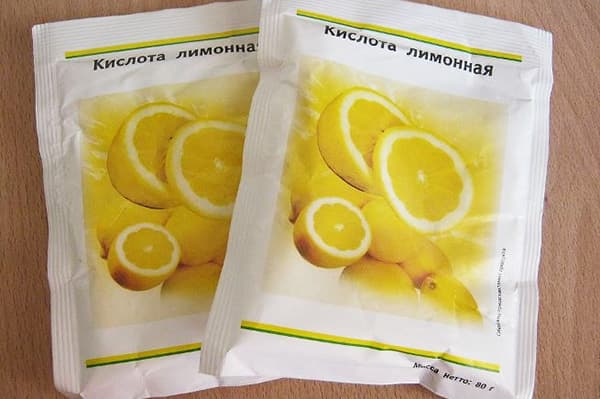

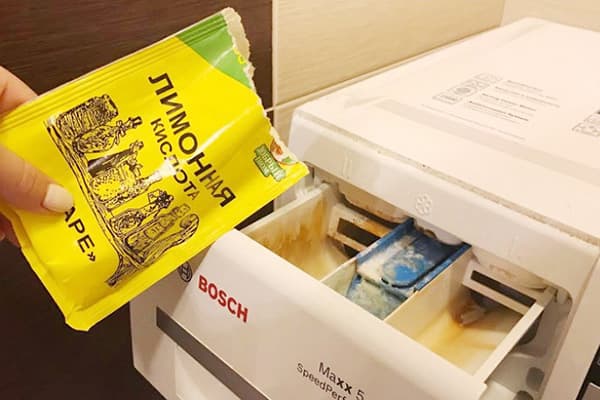
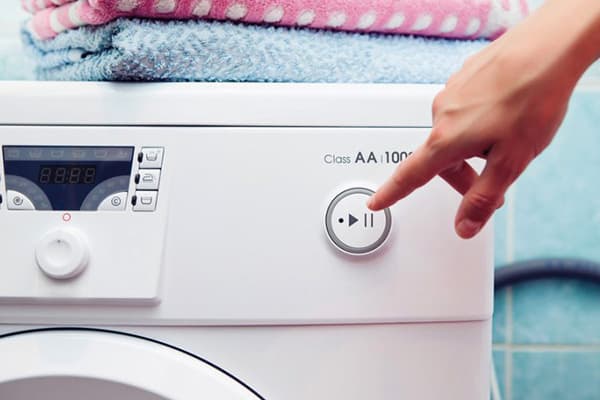
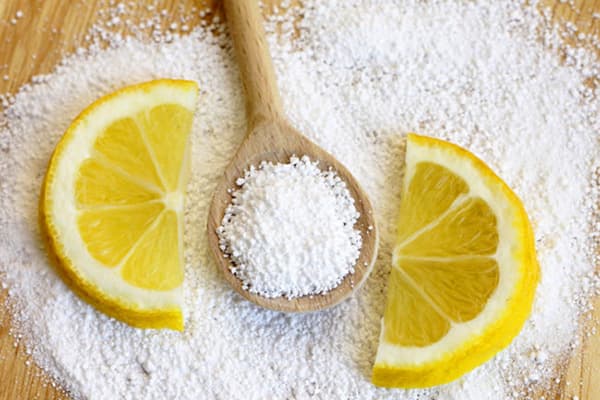
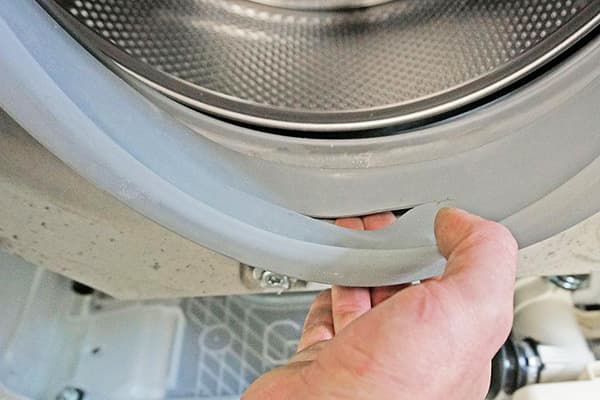
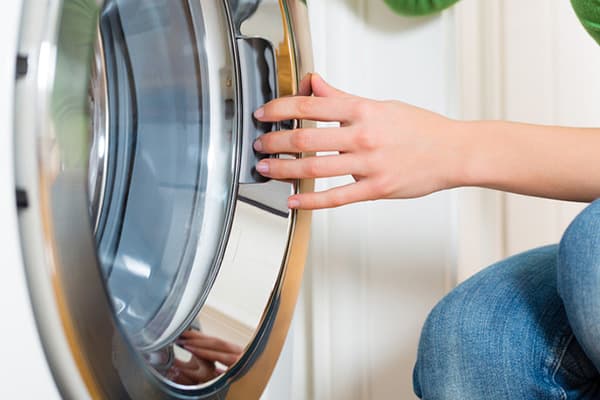
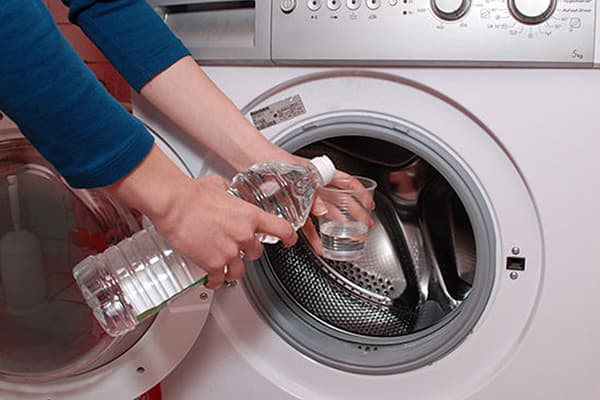
No, of course I suspected that lemongrass was an excellent remedy, but not quite like that. I'll clean my hotpoint then, let it live long)
I cleaned my washing machine with citric acid. Everything works well. Now I will clean it like this once every 3-4 months for prevention.